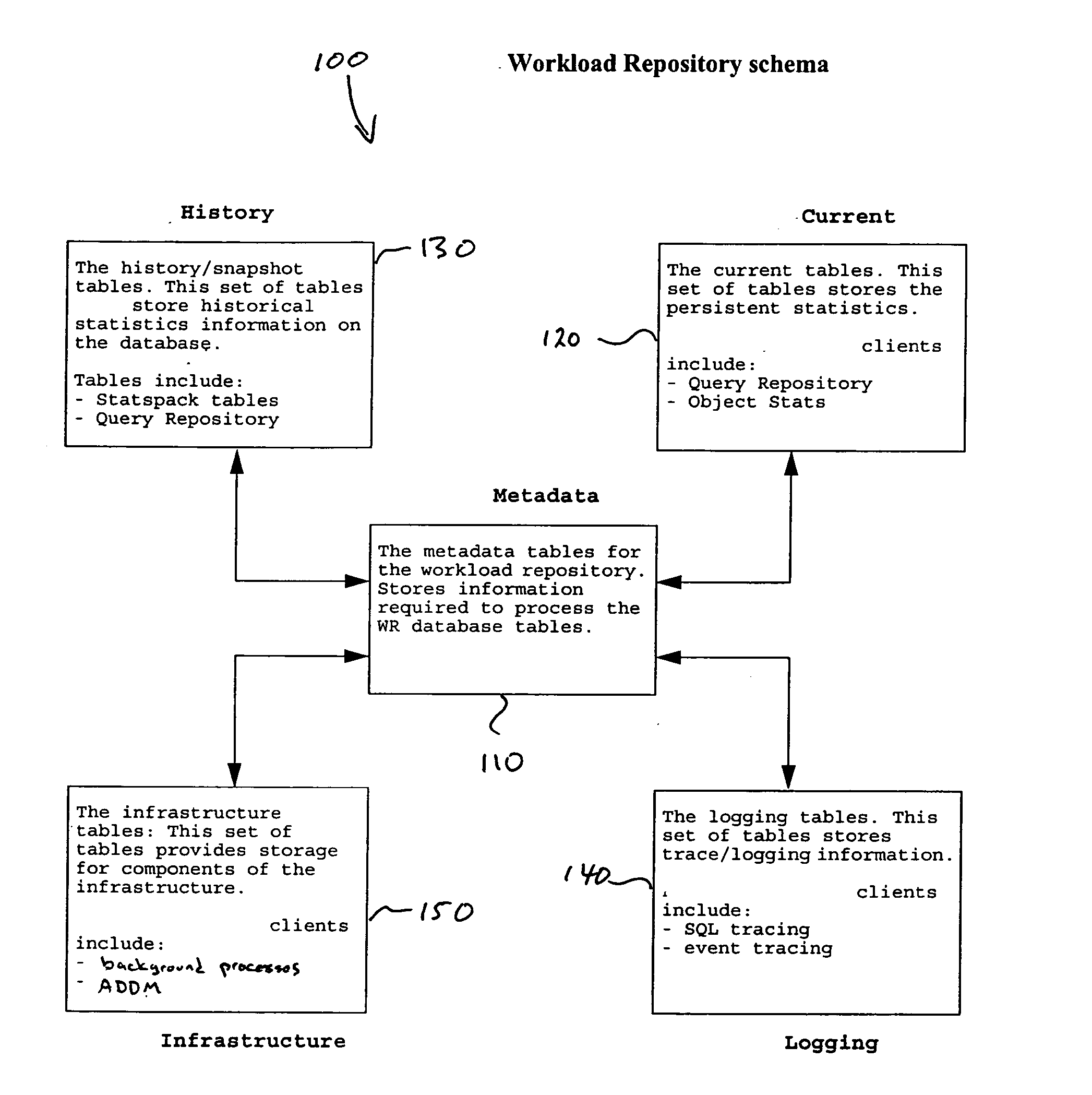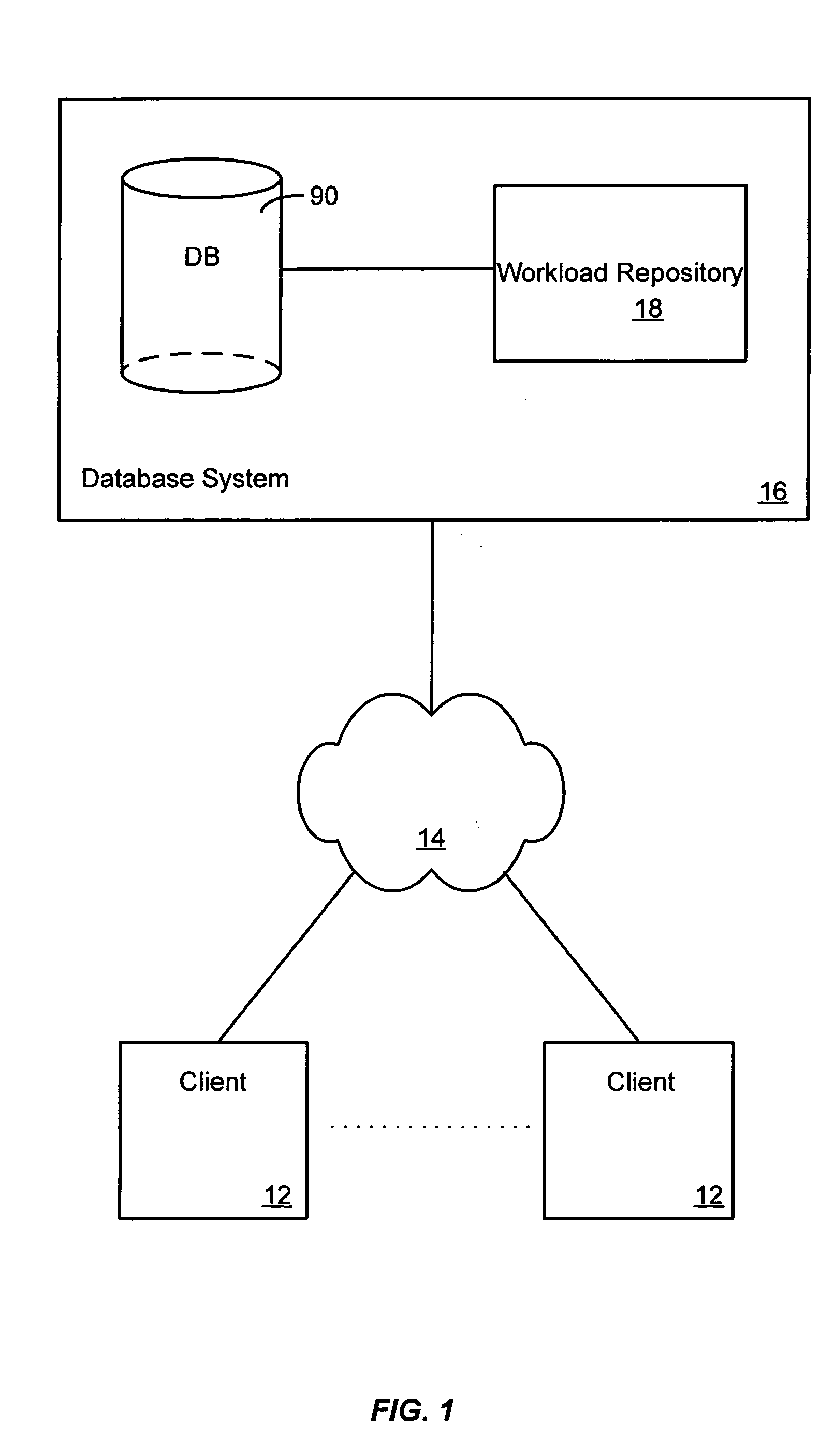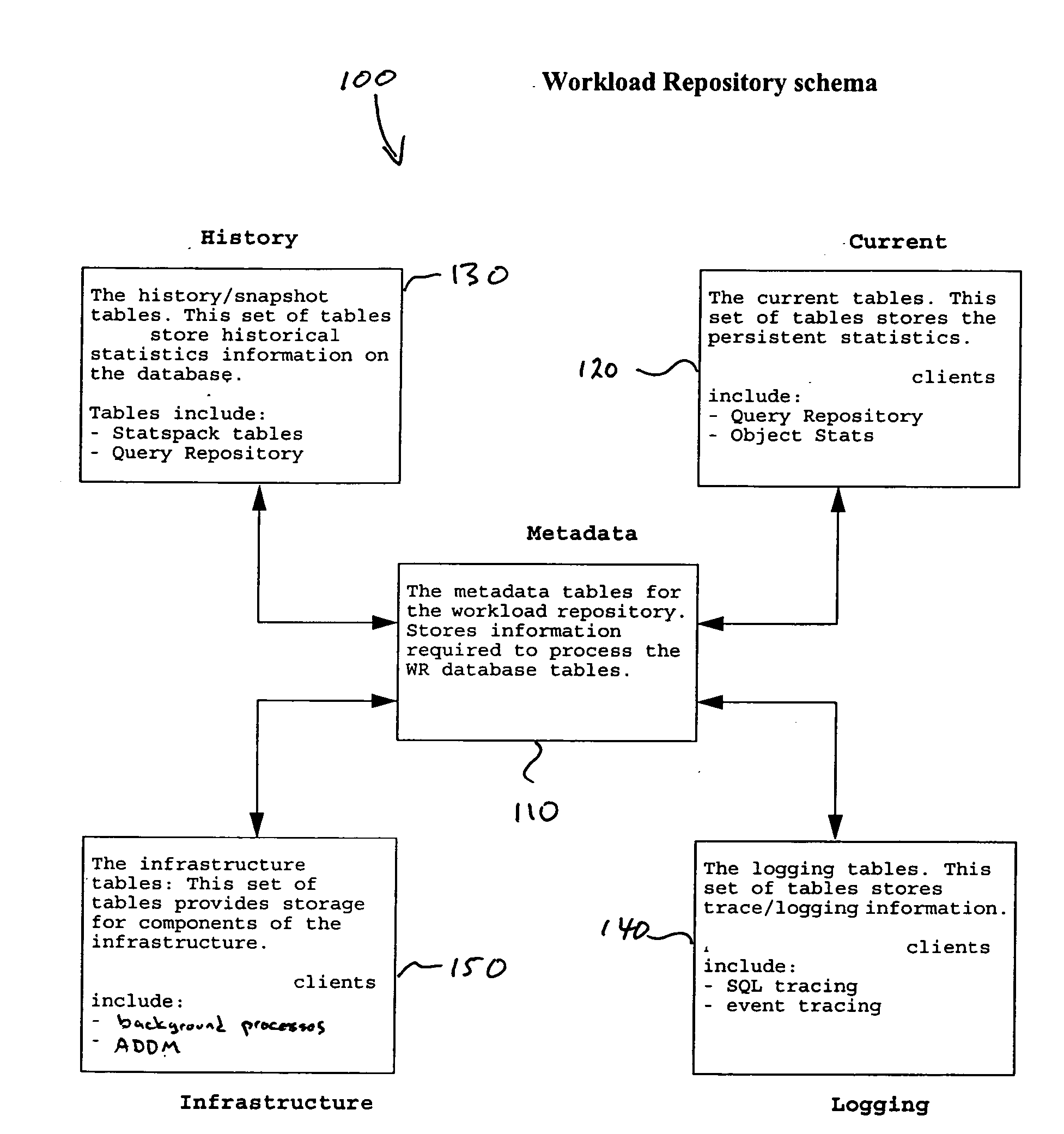Self-managing performance statistics repository for databases
a database and self-managing technology, applied in the field of database management, can solve the problems of ineffective and costly methods for database users, affecting the quality of database statistics, and sometimes producing fruitless data collection after the fact, so as to minimize the cost of data access and the collection process is highly efficient
- Summary
- Abstract
- Description
- Claims
- Application Information
AI Technical Summary
Benefits of technology
Problems solved by technology
Method used
Image
Examples
Embodiment Construction
[0016] The present invention provides systems and methods to automatically capture, store and manage database statistics data.
[0017] General Overview
[0018] Collecting historical database statistics data is useful to allow analysis of performance problems that occurred in a previous period. Many performance problems are intermittent. Many times when a problem is reported, the problem is no longer happening. If the system has a record of what was going on in the system, it is typically much easier to identify the problems that caused the slowdown. Collecting historical database statistics data is also useful to use as a baseline for comparison with the current performance of the system. As workload changes, such comparisons are useful for identifying and predicting potential bottlenecks in the system.
[0019] Accordingly, the present invention provides, in one aspect, a workload repository (WR) module that automatically collects and stores database statistics. The workload repository...
PUM
 Login to View More
Login to View More Abstract
Description
Claims
Application Information
 Login to View More
Login to View More - R&D
- Intellectual Property
- Life Sciences
- Materials
- Tech Scout
- Unparalleled Data Quality
- Higher Quality Content
- 60% Fewer Hallucinations
Browse by: Latest US Patents, China's latest patents, Technical Efficacy Thesaurus, Application Domain, Technology Topic, Popular Technical Reports.
© 2025 PatSnap. All rights reserved.Legal|Privacy policy|Modern Slavery Act Transparency Statement|Sitemap|About US| Contact US: help@patsnap.com



